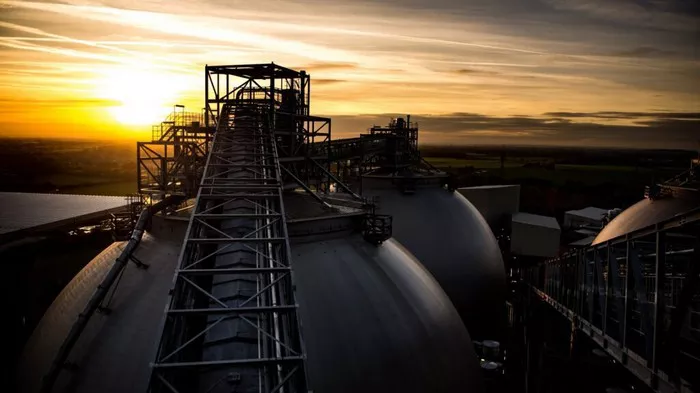LONDON – Drax Group Plc, the UK-based operator of the Drax biomass power station, is exploring opportunities to meet the growing demand for round-the-clock energy supply to data centres. The company revealed this potential venture as it updated investors on its performance ahead of its full-year results report in February.
Drax has identified a promising opportunity in the increasing demand for continuous, reliable power to support the operations of data centres. The company has engaged positively with data centre providers about the possibility of co-locating a data centre alongside its biomass generation facilities.
In its market update, Drax stated that it expects its adjusted earnings before interest, taxes, depreciation, and amortisation (EBITDA) for 2024 to be at the upper end of analysts’ consensus estimates, which range from £993 million to £1.039 billion. The company’s projected EBITDA of approximately £1.004 billion ($1.29 billion / €1.21 billion) reflects robust performance across key segments of its business, including Flexible Generation, Pellet Production, and Biomass Generation.
Will Gardiner, CEO of Drax, commented, “Our Flexible Generation and Pellet Production businesses are progressing well towards our target of achieving over £500 million in recurring EBITDA post-2027. We are actively pursuing growth opportunities while maintaining a disciplined approach to capital allocation.”
Drax is also in ongoing discussions with the UK government about a proposed transitional mechanism for large-scale biomass generators as they shift from existing renewable energy schemes to bioenergy with carbon capture and storage (BECCS) by 2027.
“Our investment in BECCS is contingent on receiving greater clarity from the UK government regarding the frameworks that will allow us to continue operating the power station beyond 2027 and support the transition to BECCS conversions starting in 2030,” said Gardiner.
He further highlighted that with the right investment framework and milestones, Drax is poised to explore opportunities in both BECCS and pumped storage hydro projects. These initiatives could potentially generate thousands of new jobs and attract private investment into green energy projects in regions like Yorkshire and Scotland.
Related topics:

